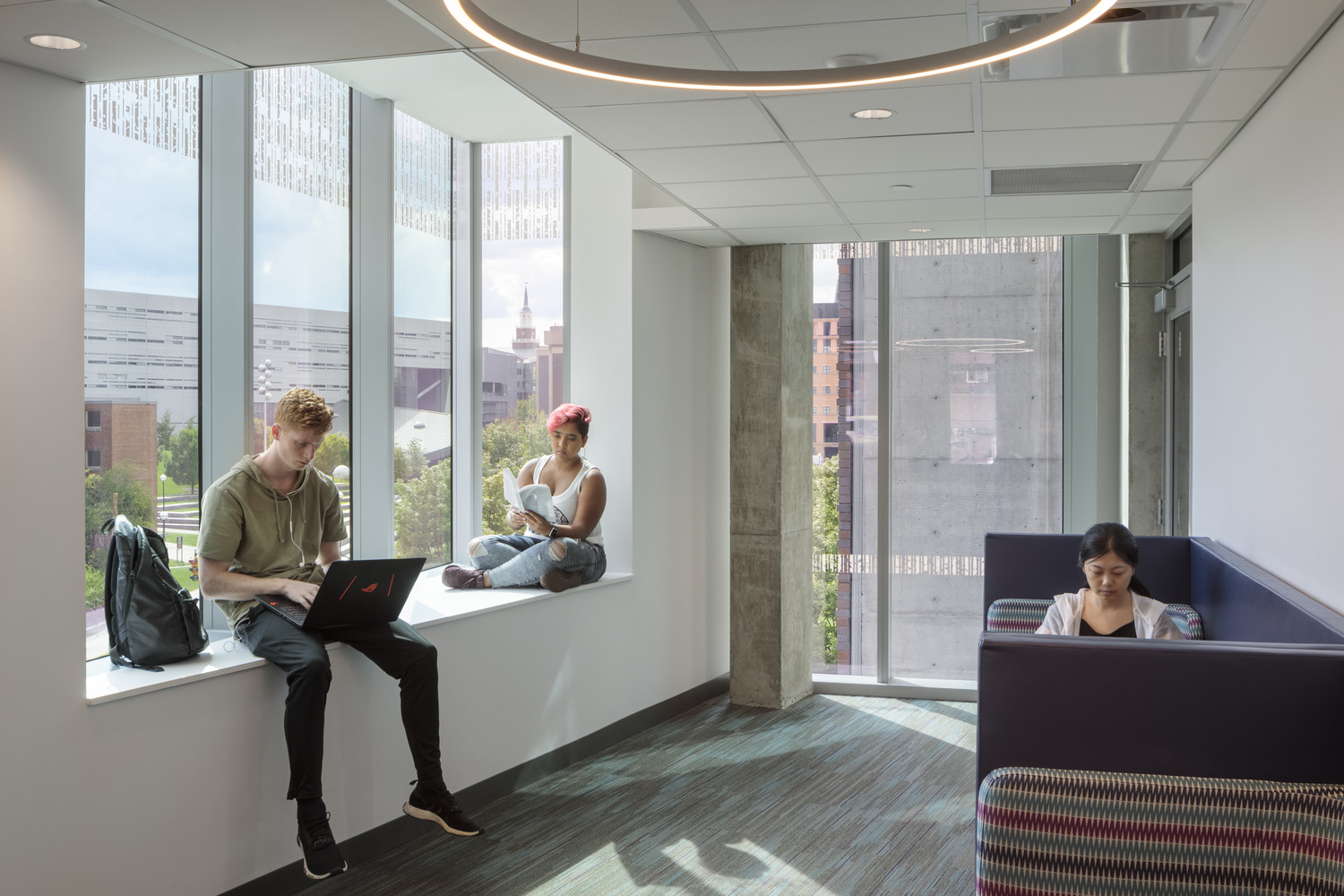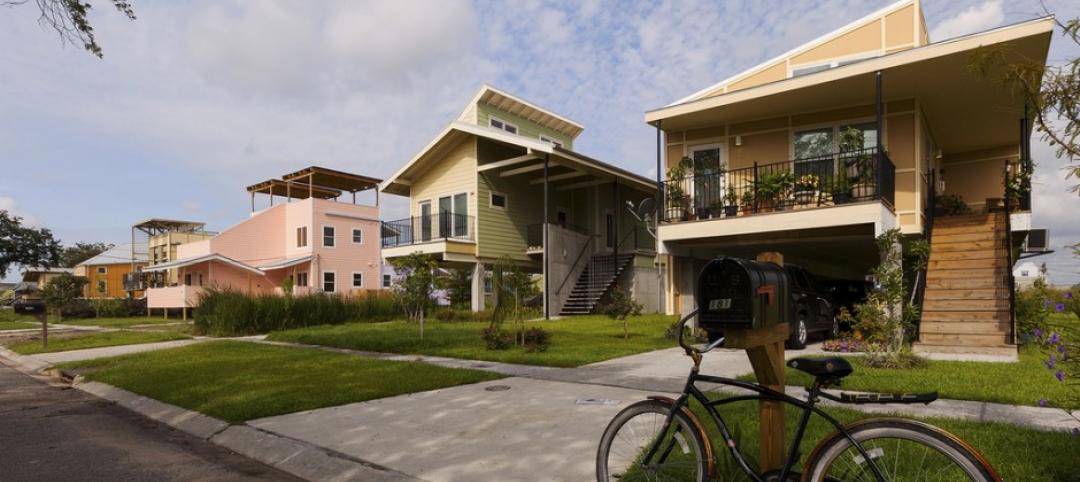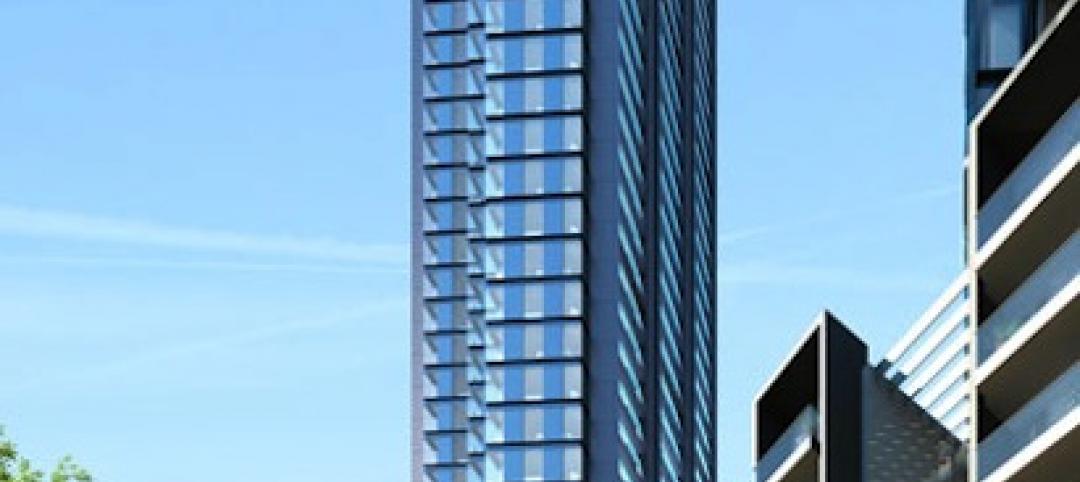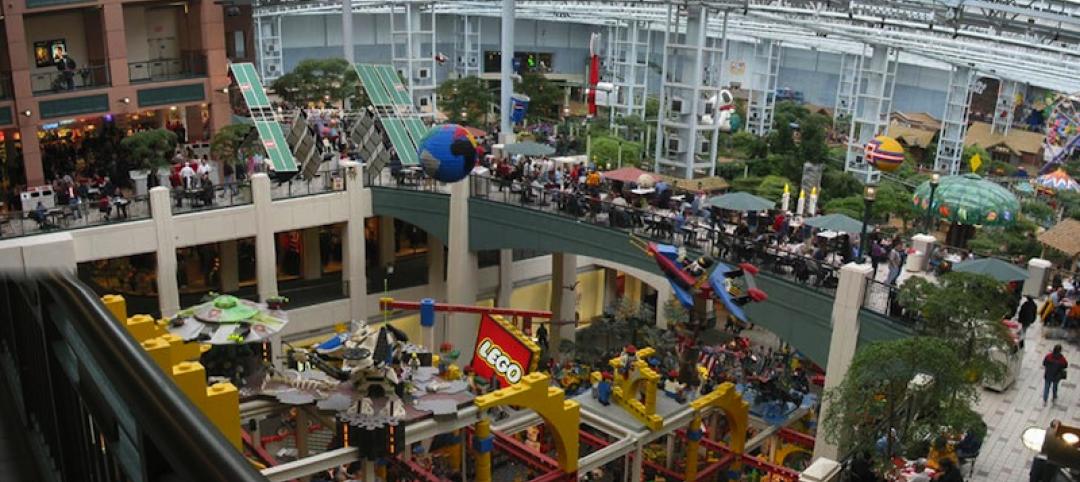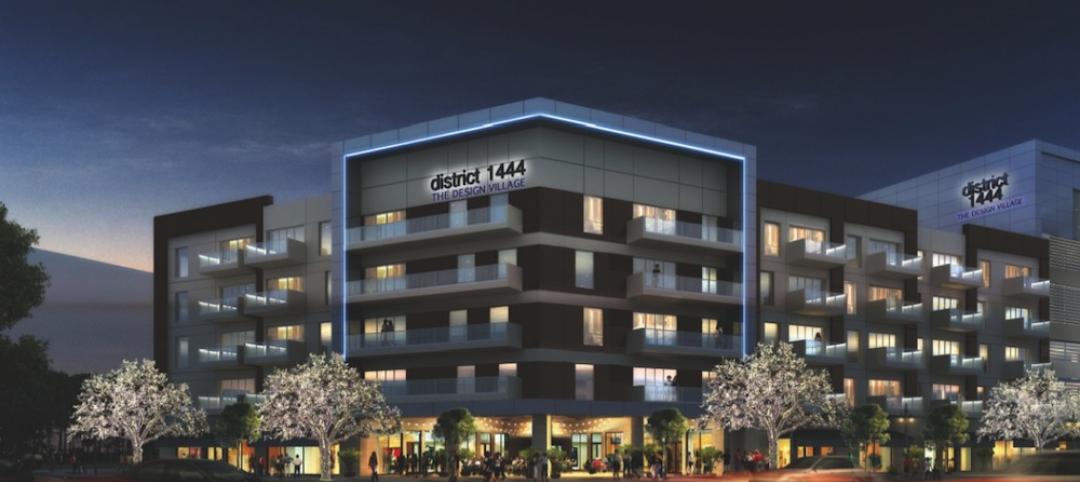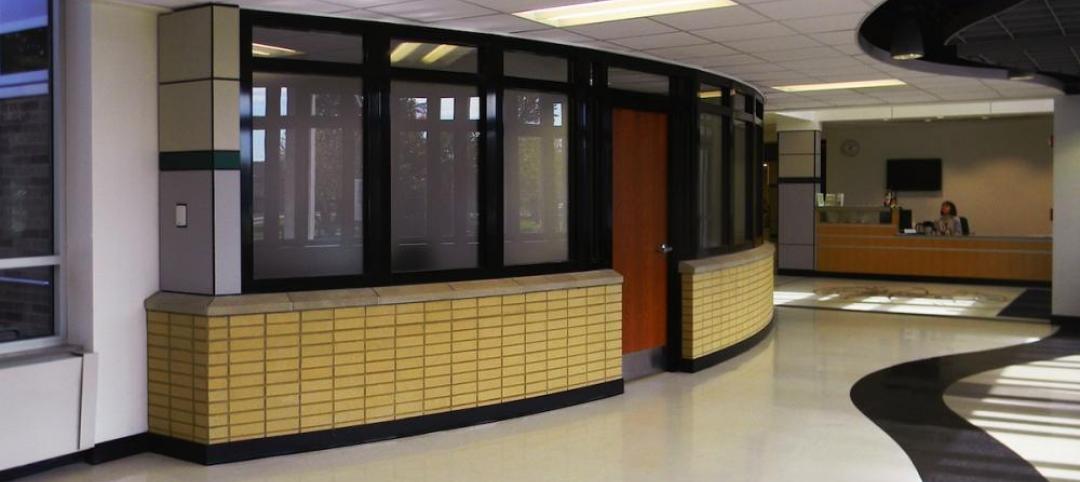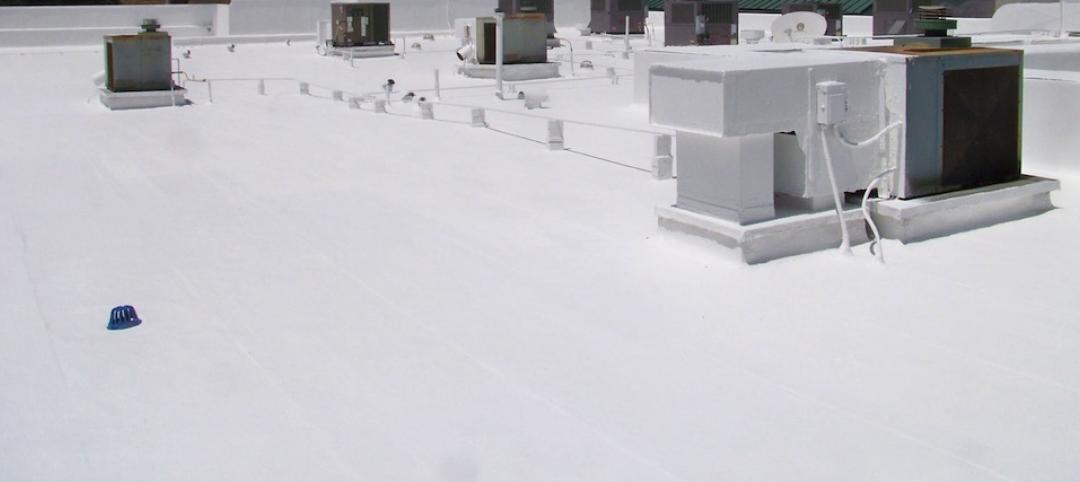The first of the Gen Z students are now freshman and sophomores in college. Soon, they will replace Millennials on campus completely. When it comes to Gen Z, no website, brochure, or campus tour can compete with the power of social media; they have never known a world without it—it’s where they live, learn, promote, slam, etc.
When it comes to the design and space planning of your residence life program, the quality of the space you create will be reflected—good or bad—in the social media feeds of your students. Gen Zs may show up for a campus tour, but their opinion will be shaped by searching the #nameofyourhall to see what their digital peers are saying about it. Inspiring positive posts starts with creating positive spaces for these students to Gather, Bond, Play, Rejuvenate, and simply, Be. It starts with providing spaces that enhance the college experience and empower your students’ personal growth and success.
Sharing IRL/In Real Life (Bond/Be)
Private space for Gen Z often fits within the dimensions of whatever screen they’re using. Even within social groups, this generation will retreat into their phones for a little private down time before rejoining the conversation going on around them. Social media for them is both public (in the way it amplifies their ideas and connects them to peers) and intensely private (every parent of a teen has experienced the way the phone gets turned down or the laptop lid quickly closed when we walk into a teen’s space). Zs may be having an intensely personal text conversation in the most public of spaces; they’re blurring the lines of what happens in public/private.
Video (Gather/Be/Play)
When Zs want to learn how to do something (make slime, write cover letters, create Insta Stories, or use Excel), they turn to video platforms like YouTube or Twitch. If designed correctly, space can accommodate video for group activity (gaming vs. ‘the big game’); group learning (beaming in a subject matter expert for a small group session or watching past lectures) and quiet, focused learning. Designers and Residence Life Programmers need to recognize this key difference between Millennials and Gen Z and start incorporating spaces to support these activities.
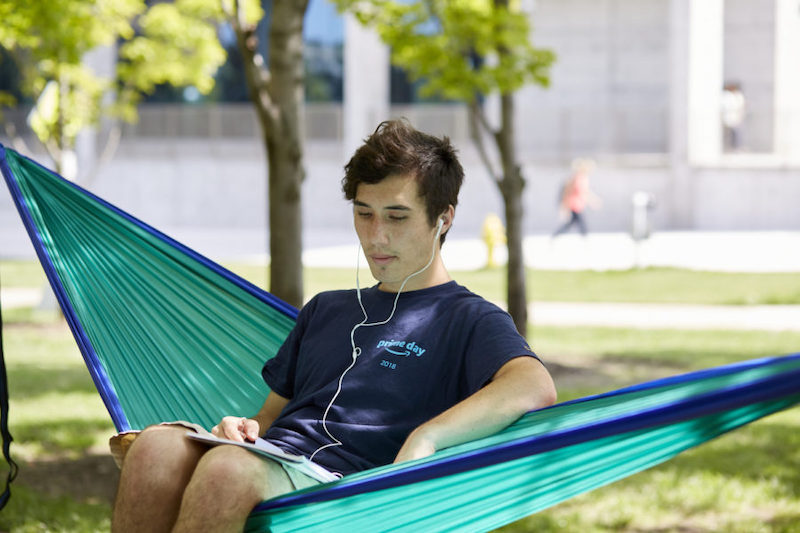
Entrepreneurial spirit (Bond/Play)
What if the prior generations’ tech leaders didn’t have to leave their universities to create their start-ups? Colleges and universities should consider providing spaces that empower students to play with their ideas, taking them from inspiration to prototype to digital marketplace quickly. Gen Zs (and ahem, their Gen X parents) have watched the cost of college continue to rise. Luxury amenities in new and renovated residence halls do not resonate with Zs or their parents, but given Z’s entrepreneurial spirit, a makerspace will (incubator spaces or pop-up business spaces might as well). Well-designed student housing can provide Gen Z with space for both living and launching.
Smart Sleep (Rejuvenate/Be)
While Gen Zs are clocking more zzz’s than previous generations they are also facing a growing burnout epidemic across industries. Space must address their needs to tune-out and turn-off. Sleeping rooms must be designed to foster a quiet place to promote relaxation and sleep. This could be as simple as blackout shades or as complex as increased noise insulation and higher NRC windows on urban campuses. These elements must be considered and custom-tailored to your university’s unique situation.
Conclusion
Just when you thought you had Millennials figured out, Gen Z shows up on your campus. Are you monitoring hashtags related to your university and residence halls? Does your next student tour have a potential social media influencer on it? It would be a mistake to consider the physical space of your residence life program as mere backdrop for selfie scrolling Gen Zs. Updating those 70s era halls requires more than surface polish—it requires understanding Gen Z’s unique preferences, expectations, and ways of communicating. The impact is great and long lasting: the real-life connections forged in your campus housing will become the digital connections that last a lifetime. Providing space for students to Gather, Bond, Play, Be, and Rejuvenate empowers them to positively connect their peers IRL and online.
Related Stories
| May 30, 2013
The Make It Right squabble: ‘How many trees did you plant today?’
A debate has been raging in the blogosphere over the last few months about an article in The New Republic, “If You Build It, They Might Not Come,” in which staff writer Lydia DePillis took Brad Pitt’s Make It Right Foundation to task for botching its effort to revitalize the Lower Ninth Ward of New Orleans.
| May 21, 2013
Foster + Partners reveals plans for London residential towers
British firm Foster + Partners has unveiled plans for two residential skyscrapers as part of a mixed-use development in north London.
| May 21, 2013
7 tile trends for 2013: Touch-sensitive glazes, metallic tones among top styles
Tile of Spain consultant and ceramic tile expert Ryan Fasan presented his "What's Trending in Tile" roundup at the Coverings 2013 show in Atlanta earlier this month. Here's an overview of Fasan's emerging tile trends for 2013.
| May 20, 2013
Jones Lang LaSalle: All U.S. real estate sectors to post gains in 2013—even retail
With healthier job growth numbers and construction volumes at near-historic lows, real estate experts at Jones Lang LaSalle see a rosy year for U.S. commercial construction.
| May 7, 2013
First look: Adrian Smith + Gordon Gill skyscraper designed to 'confuse the wind'
The 400-meter-high, 116-story Imperial Tower in Mumbai will feature a slender, rounded form optimized to withstand the area's strong wind currents.
| May 6, 2013
7 major multifamily residential projects in the works
A $140 million redevelopment of a landmark, 45-building apartment complex in Los Angeles is among the nation's significant multifamily developments under way.
| Apr 30, 2013
Tips for designing with fire rated glass - AIA/CES course
Kate Steel of Steel Consulting Services offers tips and advice for choosing the correct code-compliant glazing product for every fire-rated application. This BD+C University class is worth 1.0 AIA LU/HSW.
| Apr 26, 2013
BIG tapped to design Europa City in suburban Paris
Danish architecture firm, BIG - led by Bjarke Ingels – has been announced as the winner of an international invited competition for the design of Europa City, a 800,000 square meter cultural, recreational and retail development in Triangle de Gonesse, France.
| Apr 24, 2013
Los Angeles may add cool roofs to its building code
Los Angeles Mayor Antonio Villaraigosa wants cool roofs added to the city’s building code. He is also asking the Department of Water and Power (LADWP) to create incentives that make it financially attractive for homeowners to install cool roofs.


